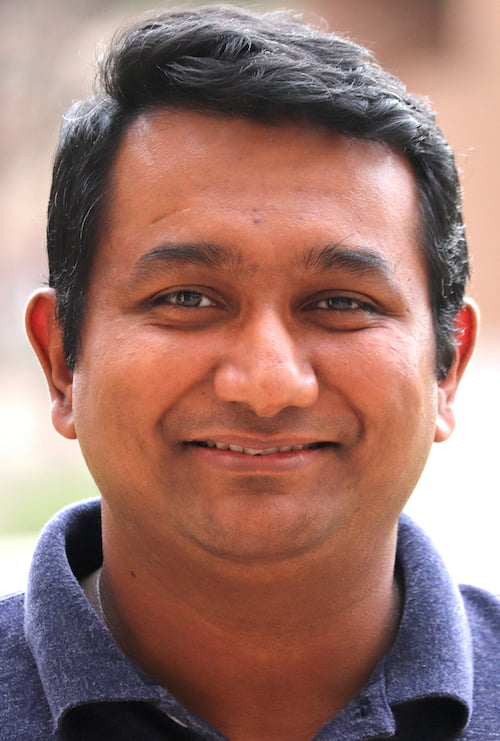At data centers, a search for sustainable cyberinfrastructure

A computer science and engineering researcher is using a $400,000 National Science Foundation grant to develop low-cost computer server power monitoring aimed at efficient and reliable operation of data centers.
Mohammad Islam, assistant professor in the Department of Computer Science and Engineering, said operating these data centers, which host thousands of servers, requires a massive amount of electricity.
“That contributes to the global energy crisis,” Islam said. “These data centers, however, are indispensable in today’s internet- and cloud-dependent society. That’s why server power monitoring and managing play a crucial role in offering insights as to how to efficiently run these data center operations.”
Islam’s project is titled “Utilizing Conducted Electromagnetic Interference (EMI) for Low-Cost Server-Level Power Monitoring in Data Centers.” VP Nguyen, another assistant professor in the Department of Computer Science and Engineering, is part of the research team.
Islam said the project’s novel power metering approach is built on utilizing EMI generated by server power supply.
“Computer servers leak their power usage information into the data center power network as high-frequency conducted EMI, which can be collected by a single voltage sensor for server-level power monitoring,” Islam said. “However, there are several technical challenges. The generation and propagation of conducted EMI in a data center environment are not well understood. In addition, extracting many servers' power consumption from a single sensor poses fundamental challenges of source separation.
“High-frequency EMI extraction and source separation require extensive and high-precision computation, as does developing a real-time and cost-effective sensing system,” Islam continued. The project’s main charges will be to bridge the knowledge gap in conducted EMI in data centers, especially in EMI generation, propagation and extraction.
Hong Jiang, chair of the Department of Computer Science and Engineering, said Islam’s project could solve many of the challenges facing computer servers.
“Managing data center power usage to achieve energy efficiency is critical for a sustainable cyberinfrastructure. Dr. Islam’s project does just that,” Jiang said. “Sustainability reaches into all aspects of our lives. We depend so much on computer servers every day. This project will help address some of the challenges facing this industry.”